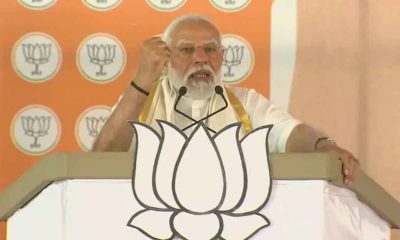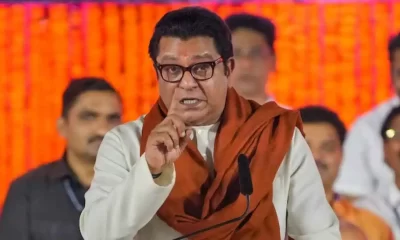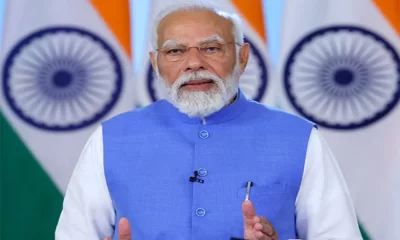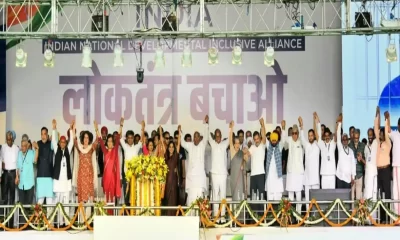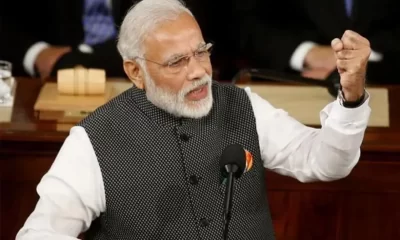India News
Exports fall in four years of Modi govt, in 2017 export-to-GDP ratio was lowest since 2005
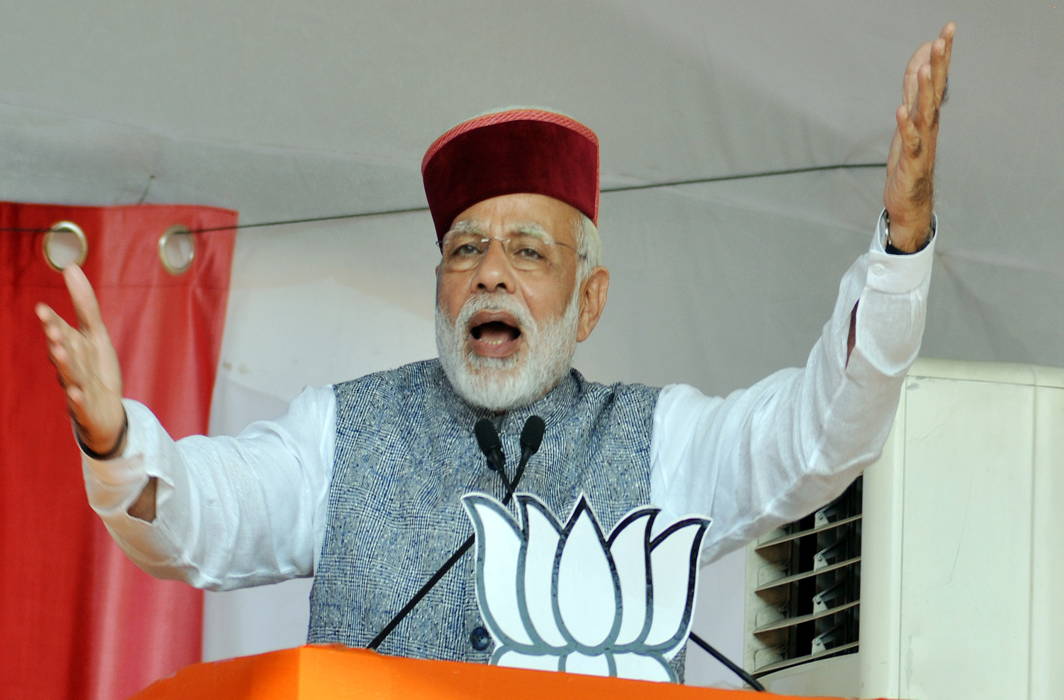
Exports of goods to Japan and countries in Africa and Latin America dropped over the four years of Narendra Modi government and grew at single digits to other regions, an IndiaSpend analysis of government data has found.
In yet another blow to Modi government’s propaganda of all round progress, the analysis found that in contrast to its performance in this aspect, the 10 years of the two United Progressive Alliance (UPA-1 and UPA-2) administrations saw 11 percent to 33 percent growth in India’s merchandise exports. Services exports are excluded from this analysis because they are limited to certain geographies because of trade agreements, said IndiaSpend.
Moreover, this decline cannot be attributed to the global trend. The growth rate of goods traded across the world grew 3 percent over the four years to 2018 and grew by 3.3 percent (2009 to 2013) – according to International Monetary Fund.
Various experts attributed the Indian export decline to domestic factors, such as demonetisation, a new goods and services tax (GST) and a new bankruptcy code, said IndiaSpend.
Merchandise exports to China grew between 2014 and 2018 but at less than 1 percent while imports grew at 11 percent; during 10 years of UPA rule, exports to China grew 13 percent and imports 30 percent.
India’s exports to Africa between 2014 and 2018 dipped by 4.22 percent and imports increased 1 percent; during 10 years of UPA rule, exports to Africa increased 22 percent and imports 59 percent.
Overall Indian imports of merchandise grew by 1.6 percent to $465 billion over this period.
India’s exports-to-gross-domestic-product (GDP) ratio at 11.44 percent in 2017 was the lowest since 2005, according to the International Monetary Fund (IMF) Outlook Report 2018.
High trade deficit
Slowing exports and increase in imports (an average annual increase of 1.6 percent from 2014-15 to 2017-18) has pushed the trade deficit from $137 billion in 2014-15 to $162 billion in 2017-18, the highest since 2012-13.
“We are facing serious headwinds at a time when the global economy post 2008 had become extremely fragile,” commerce minister Suresh Prabhu was quoted as saying in The Indian Express on 18 June, 2018.
India’s trade openness – the sum of exports and imports to GDP – was 27 percent in 2016, according to the IMF database, compared to an all-time high of 43 percent in 2012. Trade openness is an indicator of the economy’s participation in global trade.
“The first of the policy moves was the unique demonetisation experiment,” Ruchir Sharma, chief global strategist at Morgan Stanley, wrote in The Times of India on 4 October, 2017.
“The second was the goods and services tax, which was supposed to bring India in line with global standards but instead added typically Indian layers of complexity. These policies disrupted local businesses, including exporters. Imports have surged to meet consumer demand, widening the trade deficit and cutting into GDP growth.”
The view was echoed by economists Dharmakirti Joshi, Adhish Verma and Pankhuri Tandon. “The implementation of the goods and services tax and associated glitches have had an impact, particularly on small and medium enterprises – evident in low export growth in gems and jewellery, textiles, and leather sectors,” they wrote in a report for Crisil, a ratings agency.
2024 Lok Sabha Elections
Sunita Kejriwal holds maiden Lok Sabha election roadshow in Delhi
Sunita Kejriwal will also hold a road show in West Delhi Lok Sabha constituency on Sunday. AAP party leaders said Sunita Kejriwal will also spearhead the campaign for AAP candidates in South Delhi and New Delhi constituencies as well as in Haryana, Gujarat and Punjab.
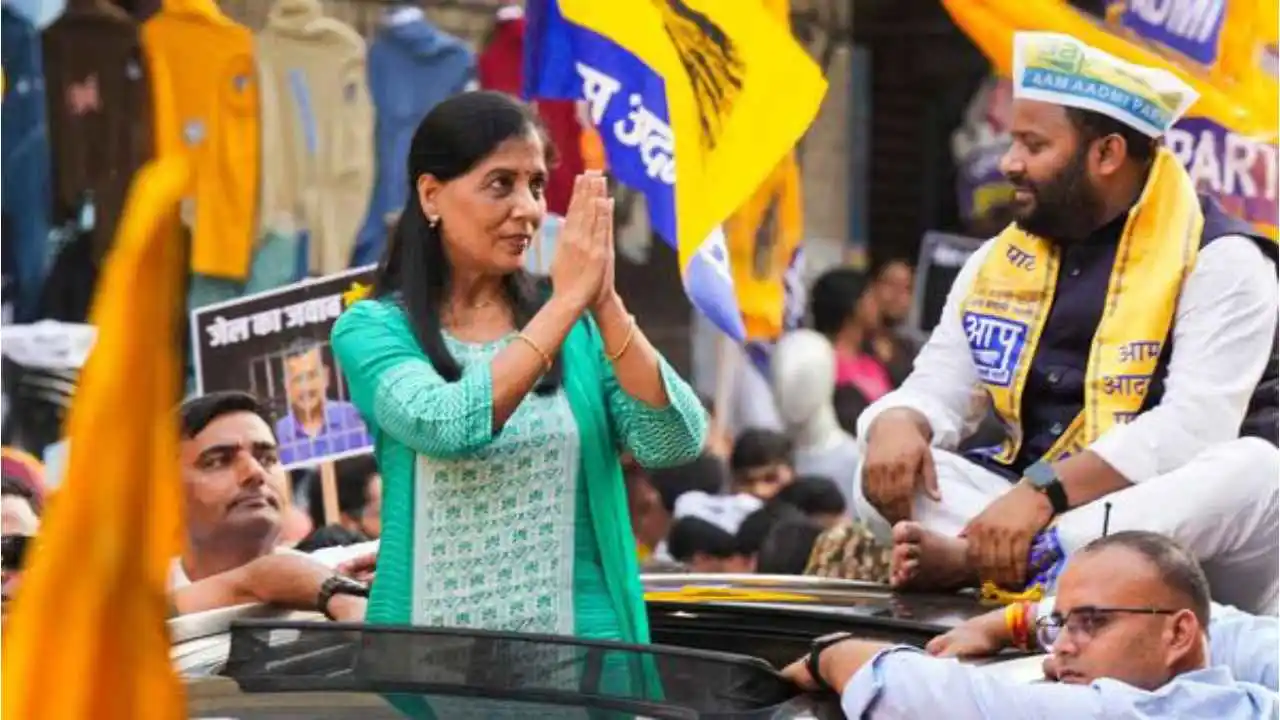
Aam Aadmi Party began its campaign for 3rd phase of Lok Sabha elections 2024 on Saturday with Sunita Kejriwal, wife of jailed Delhi Chief Minister Arvind Kejriwal holding a roadshow in Delhi. In a massive rally, Sunita Kejriwal was be seen standing on a vehicle holding her hands and greeting the people of the area. AAP’s East Delhi candidate Kuldeep Kumar was seen sitting on the vehicle as he showcased a portrait of Rani Laxmibai.
Earlier ahead of Sunita Kejrieal’s roadshow, Kuldeep Kumar told the media that Delhi Chief Minister Arvind Kejriwal who worked to provide the best school, and free- electricity to the people of Delhi has been framed in a fake case by BJP. Kumar further added that from today onwards Sunita Kejriwal’s roadshow will start and she is going to seek support and blessings from the Delhi people to continue its fight against the BJP government.
Aam Aadmi Party workers also staged a protest under the banner of Jail ka jawab vote se near Delhi’s Lakshmi Nagar area on Saturday against the arrest of Delhi CM Arvind Kejriwal in connection with an excise policy case.
After the Delhi CM’s arrest by the Enforcement Directorate (ED) in the liquor policy case in March, Sunita Kejriwal has taken up a more prominent role in campaigning activities for the Aam Aadmi Party. Since the Delhi CM’s arrest, Atishi and other AAP leaders have alleged that the arrest was made so that to the AAP Supremo can be prevented from campaigning for the Lok Sabha elections. Arvind Kejriwal has been sent to judicial custody until May 7.
Sunita Kejriwal will also hold a road show in West Delhi Lok Sabha constituency on Sunday. AAP party leaders said Sunita Kejriwal will also spearhead the campaign for AAP candidates in South Delhi and New Delhi constituencies as well as in Haryana, Gujarat and Punjab. She is emerging as a star campaigner for Aam Aadmi Party.
2024 Lok Sabha Elections
Mallikarjun Kharge says candidates for Amethi, Rae Bareli seats in Uttar Pradesh will be announced in a few days
On being asked about the names of the candidates for Amethi and Rae Bareli Lok Sabha constituencies Mallikarjun Kharge said the people will have to wait for a few more days. He said when the names of candidates come from people to him and he will sign the notification, then the announcement will be made.
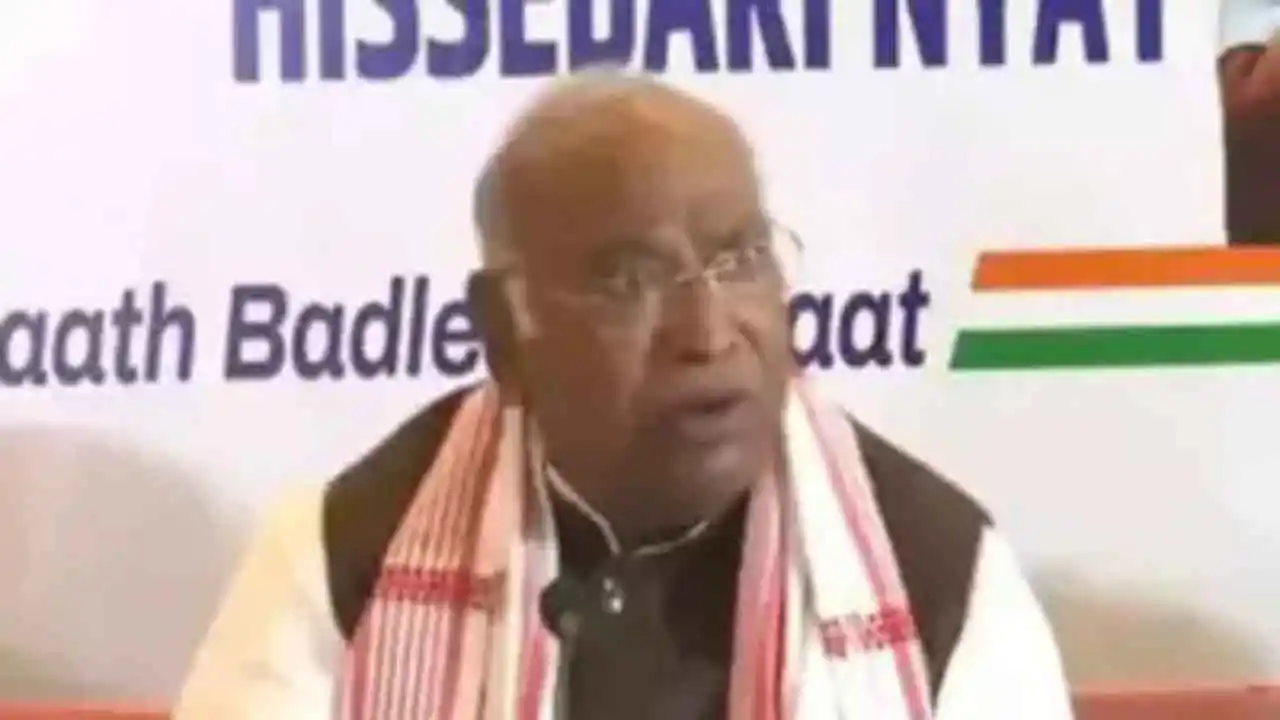
Congress president Mallikarjun Kharge on Saturday said that the candidates for prestigious Amethi and Rae Bareli seats in Uttar Pradesh will be announced in a few days. He was addressing a press conference where he claimed that though the BJP says the corrupt must be put in jails, when leaders facing corruption charges join the saffron party, they are put on the lap and sent to Rajya Sabha or assembly.
On being asked about the names of the candidates for Amethi and Rae Bareli Lok Sabha constituencies he said the people will have to wait for a few more days. He said when the names of candidates come from people to him and he will sign the notification, then the announcement will be made.
On being questioned about Congress leaders changing constituencies Kharge asked how many times have Atal Bihari Vajpayee and Lal Krishna Advani changed their seats. His response came when asked about the BJP criticising Rahul Gandhi for fighting the elections from Kerala’s Wayanad instead of Amethi. Referring to Assam Chief Minister Himanta Biswa Sarma, Kharge said the Congress is not affected by people who grew up in the party and left it later.
The Congress president launched an all round attack on the BJP and PM Modi and said the prime minister did not implement even one of his electoral promises and still says Modi did a lot of work for the country. Addressing the press conference he said the BJP never fought for the independence of India, but Congress is a party of those who made India independent. He said the BJP never fought for the independence of India, for the development of India. The Congress President said the BJP speaks so much about patriotism and that the contribution of Pandit Jawahar Lal Nehru, Indira Gandhi and Lal Bahadur Shastri is nothing before them.
2024 Lok Sabha Elections
Priyanka Gandhi accuses BJP of planning to change the Constitution, criticises PM Modi for inflation
Priyanka Gandhi was speaking at an election rally at Dharampur village of tribal dominated Valsad district held in support of Congress candidate for ST-reserved Valsad Lok Sabha seat, Anant Patel.
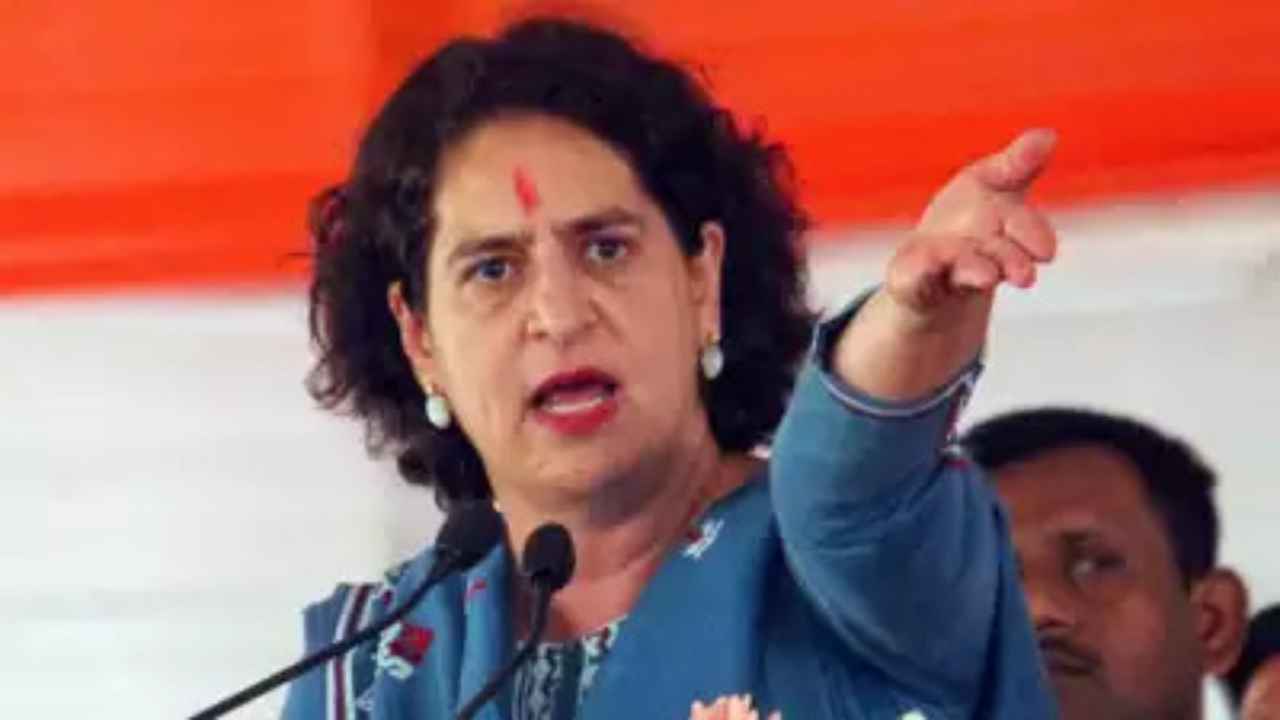
Congress leader Priyanka Gandhi on Saturday said the BJP may be denying it now, but the party will change the Constitution if it returns to power. She targeted Prime Minister Narendra Modi over inflation and called him the mehengai man.
Gandhi said the BJP leaders and candidates are saying that they will change the Constitution. She said PM Modi is denying it and this is BJP’s tactic. Priyanka Gandhi was speaking at an election rally at Dharampur village of tribal dominated Valsad district, Gujarat held in support of Congress candidate for ST-reserved Valsad Lok Sabha seat, Anant Patel.
Gandhi said first the BJP will deny what they want to do. But after coming to power they will implement it. She further added the BJP wants to change the constitution to weaken the common people and deprive them of their rights given in the Constitution. She said the BJP leaders project the Prime Minister as powerful and say that chutki bajake ladai rukwa dete hai (he can stop the Russia- Ukraine war with the snap of his fingers). She asked why is Prime Minister unable to remove poverty just like that?
Priyanka Gandhi claimed the tribal population in Gujarat which is Modi’s home state and the whole country is suffering from issues like rising inflation, unemployment, low remumberation, loss of land, violence against women and other atrocities. She highlighted the Congress manifesto and said it addresses issues faced by the tribal population.
She assured the people that the Congress will bring schemes like MGNREGA for urban areas where families will get 100 days of guaranteed work. She said the Congress is committed to filing about 30 lakh vacancies in government jobs, providing subsidised diesel to fishermen and take the minimum wage to Rs 400. Gandhi said the Congress is going to work out sub plans for Scheduled Tribes and scheduled castes.
-

 Education22 hours ago
Education22 hours agoPhysics Wallah founder gets invited as speaker to Harvard, Stanford Universities, post goes viral
-

 2024 Lok Sabha Elections19 hours ago
2024 Lok Sabha Elections19 hours agoMallikarjun Kharge says candidates for Amethi, Rae Bareli seats in Uttar Pradesh will be announced in a few days
-

 2024 Lok Sabha Elections20 hours ago
2024 Lok Sabha Elections20 hours agoPriyanka Gandhi accuses BJP of planning to change the Constitution, criticises PM Modi for inflation
-
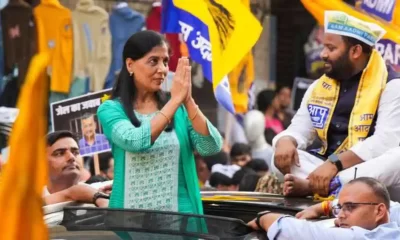
 2024 Lok Sabha Elections17 hours ago
2024 Lok Sabha Elections17 hours agoSunita Kejriwal holds maiden Lok Sabha election roadshow in Delhi
-

 2024 Lok Sabha Elections23 hours ago
2024 Lok Sabha Elections23 hours agoSmriti Irani takes a swipe at Rahul Gandhi for calling Amethi his home but contesting Lok Sabha elections from Wayanad
-

 Cricket news28 mins ago
Cricket news28 mins agoIPL 2024: Rajasthan Royals beat Lucknow Super Giants by 7 wickets and 6 balls to spare

